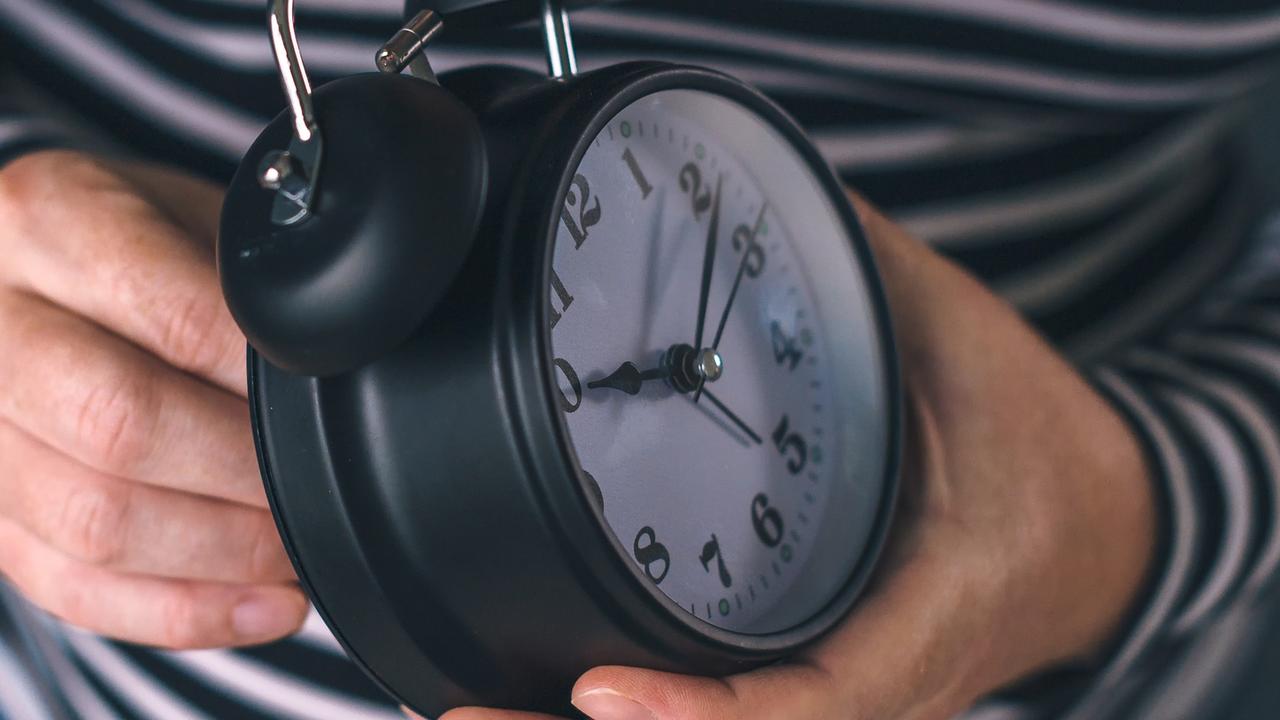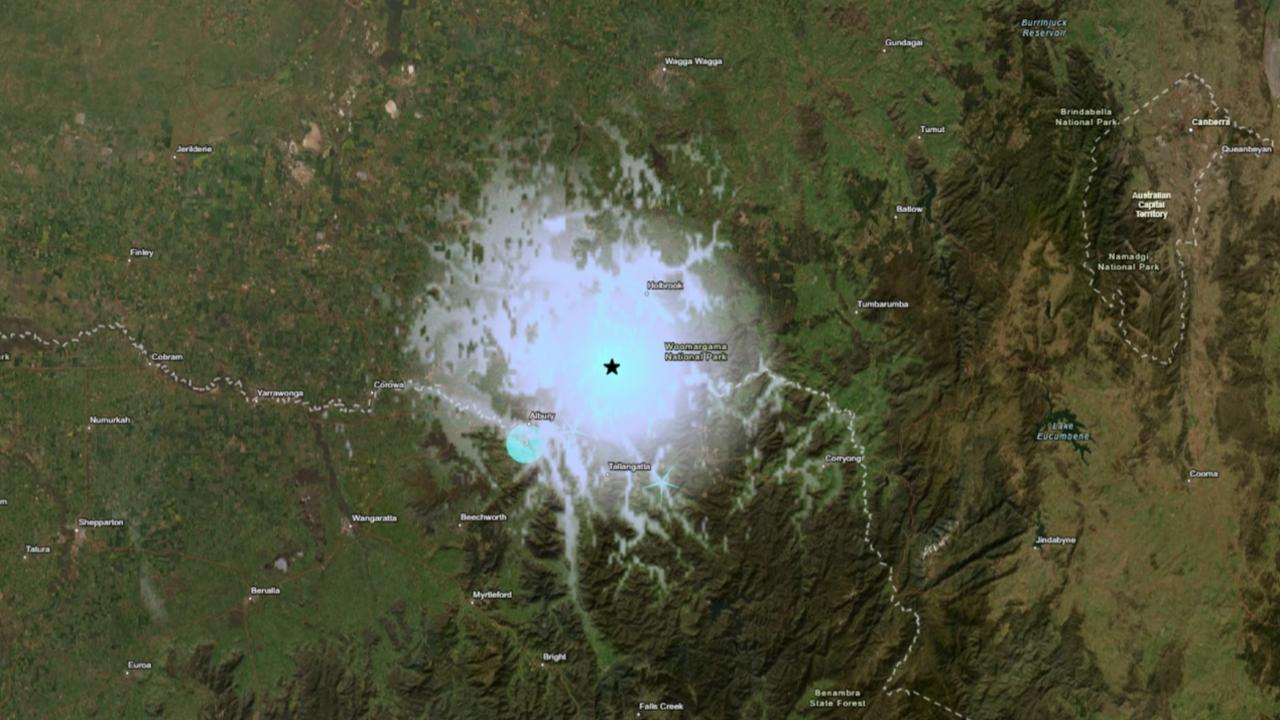Update after Coogee Beach closed due to black ‘tar balls’
The mystery black balls that washed up on an iconic Sydney beach have finally been identified, but it will remain closed now.
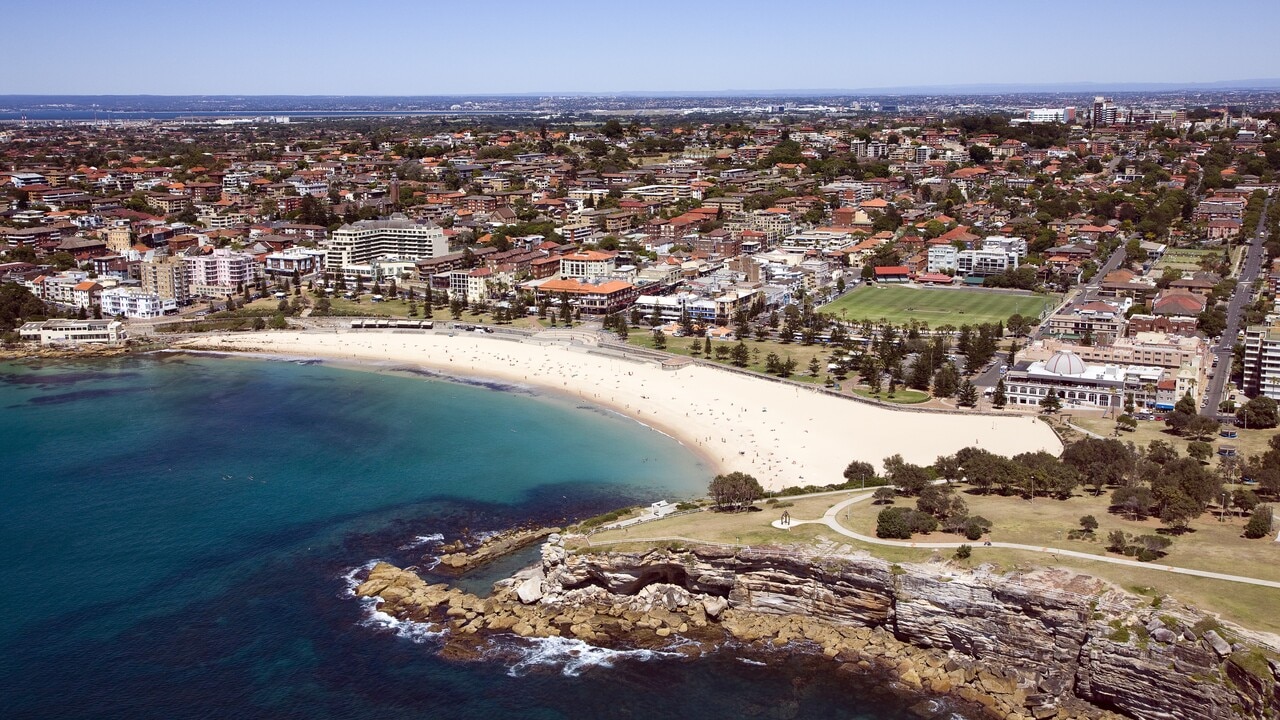
Thousands of black balls found washed up on a popular Sydney beach have been identified as tar balls.
The unusual floaters were first spotted on Coogee Beach on Tuesday.
Randwick City Council says preliminary test results from samples collected on Tuesday afternoon showed the balls were a hydrocarbon-based pollutant “consistent with the makeup of tar balls”, as had been suspected.
Hydrocarbons are the main components of petroleum-based products and can be carcinogenic or poisonous.
Coogee Beach and neighbouring Gordons Bay remain closed till further notice, as a major cleanup of the sites continues.
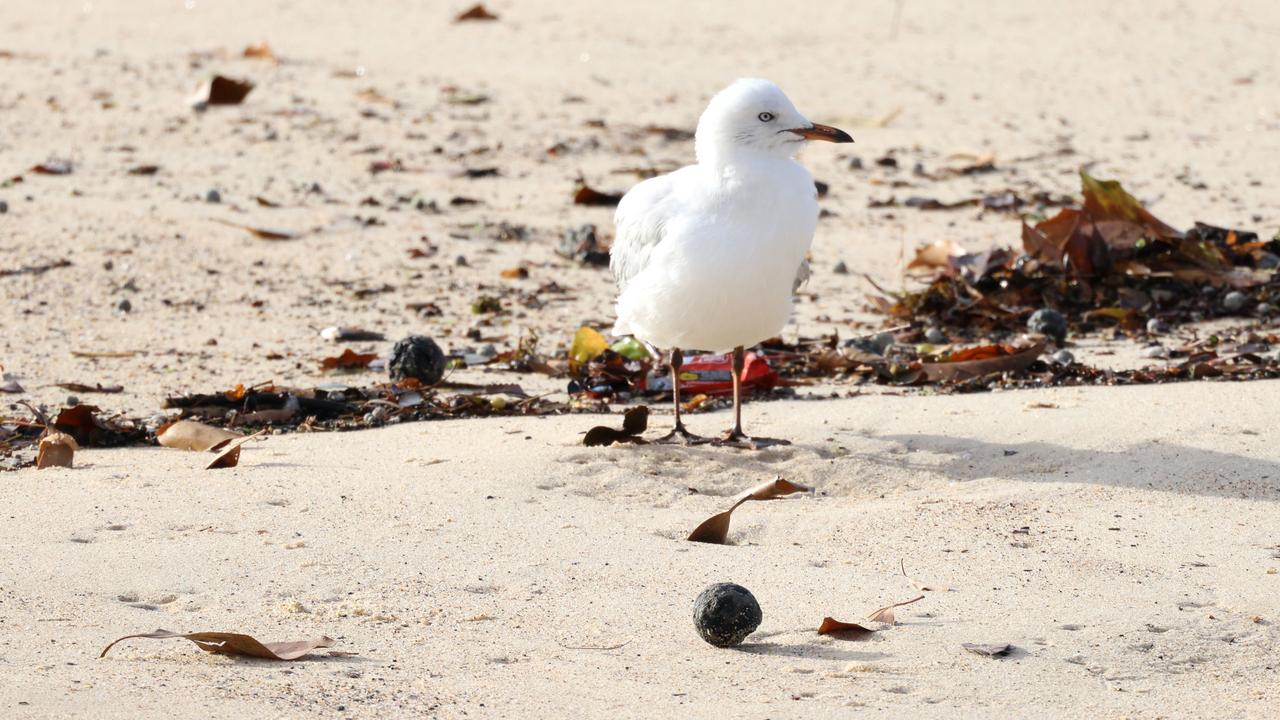
Randwick Council Mayor Dylan Parker said hundreds of the black, ball-shaped debris was found along the length of the beach on Tuesday and Wednesday morning.
Mr Parker said council lifeguards had spotted the balls washing by Wedding Cake Island, just off the coastline
He said the beaches would be closed until workers could safely remove and dispose of the material.
“Our priority as a local council is to keep people safe and protect as far as possible our coastal and marine environment,” Randwick mayor Dylan Parker said.
“We have engaged an expert occupational hygienist and a specialist waste removal contractor who are currently systematically removing the debris from the beaches in accordance with an agreed safe work method statement developed with the NSW EPA.
“This process will likely continue (Thursday).”
While the scale or origin of the pollution incident is not yet known, Mayor Parker said Council will continue to work with all relevant authorities as required.
“I am grateful to the community for their patience and for remaining off the beach. I also wish to thank the council staff, contractors and various NSW government agency staff who have been working around the clock to respond to this issue.”
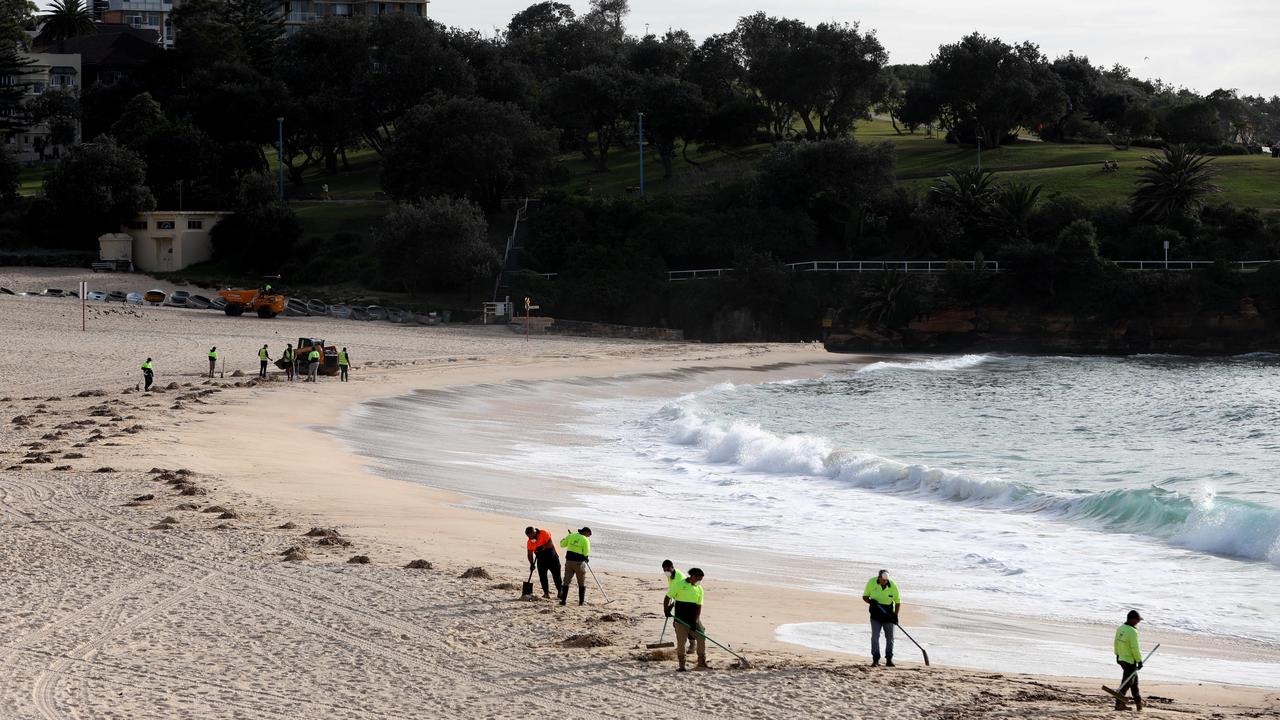
Humane Society International marine biologist Lawrence Chlebeck said earlier the balls look like tar balls or oil balls.
When asked about the substance being carcinogenic, Mr Chlebeck likened touching one of the balls to inhaling fumes or immersing in fossil fuels.
“We would not want to stick our arm into a barrel of crude oil,” he said, cautioning
anyone from grabbing them or swimming nearby.
Lab testing would identify which chemicals were present in the clumps, pointing to where they had come from, Mr Chlebeck said.
A ship or small run-off was likely the cause of the oil or tar entering the water, and there would need to be “a lot more evidence” to suggest any sort of large scale oil spill, he said.
The particularly round nature of the clumps indicates they have been buffeted and smoothed at sea for months.
But the fact they have only washed ashore at Coogee and Gordons Bay and not Bondi showed how intricate sea currents can be, and they could well have washed up from the wider Pacific Ocean.
People at nearby beaches should be on the lookout in the coming days, he said
The mayor of Randwick Council says the mysterious black balls began washing up on Sydney’s popular Coogee Beach on Tuesday, with early indications pointing to an oil spill out at sea.
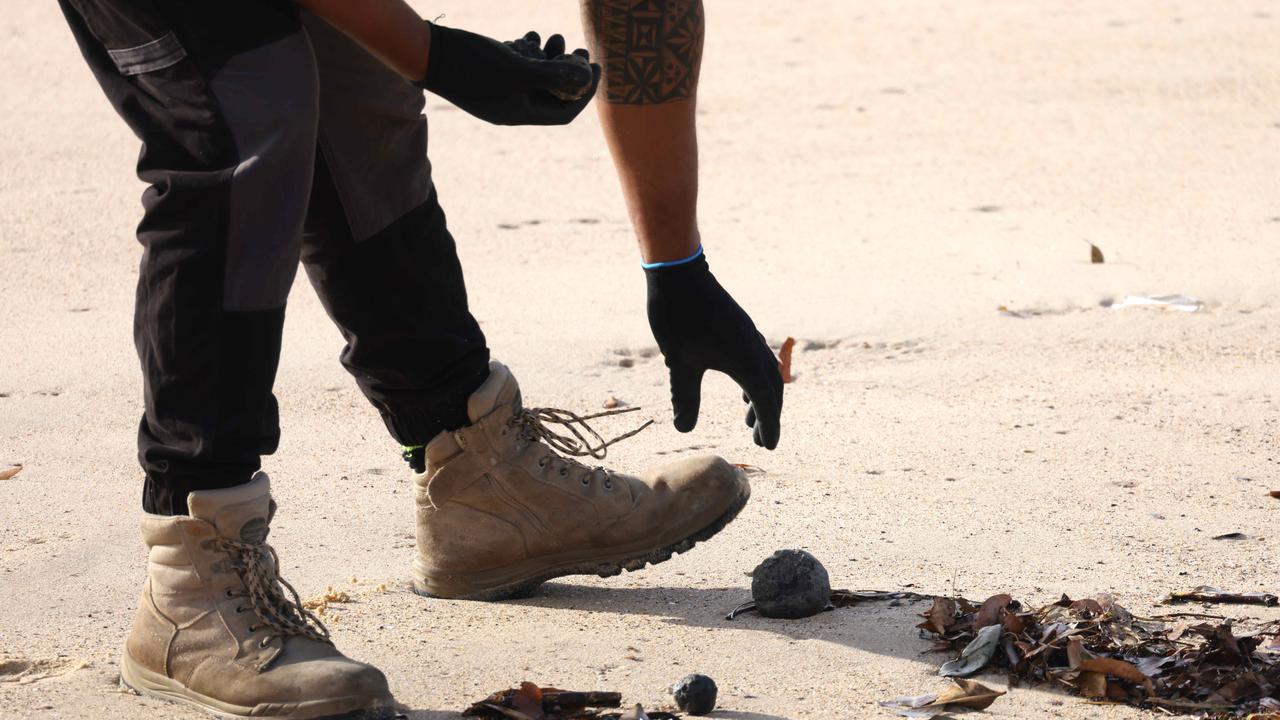
“Council lifeguards on jet skis have gone out and we have identified some of these balls washing up on Wedding Cake island,” he said.
“There looks to be an oil spill or slick but it’s still under investigation.
“Initial reports seem to suggests some sort of oil pollution or contamination.”
Randwick Council is liaising with the NSW Environment Protection Agency, Beach Watch NSW and other relevant bodies on when it might be safe to open the beach again.
“This has never happened before,” he said.
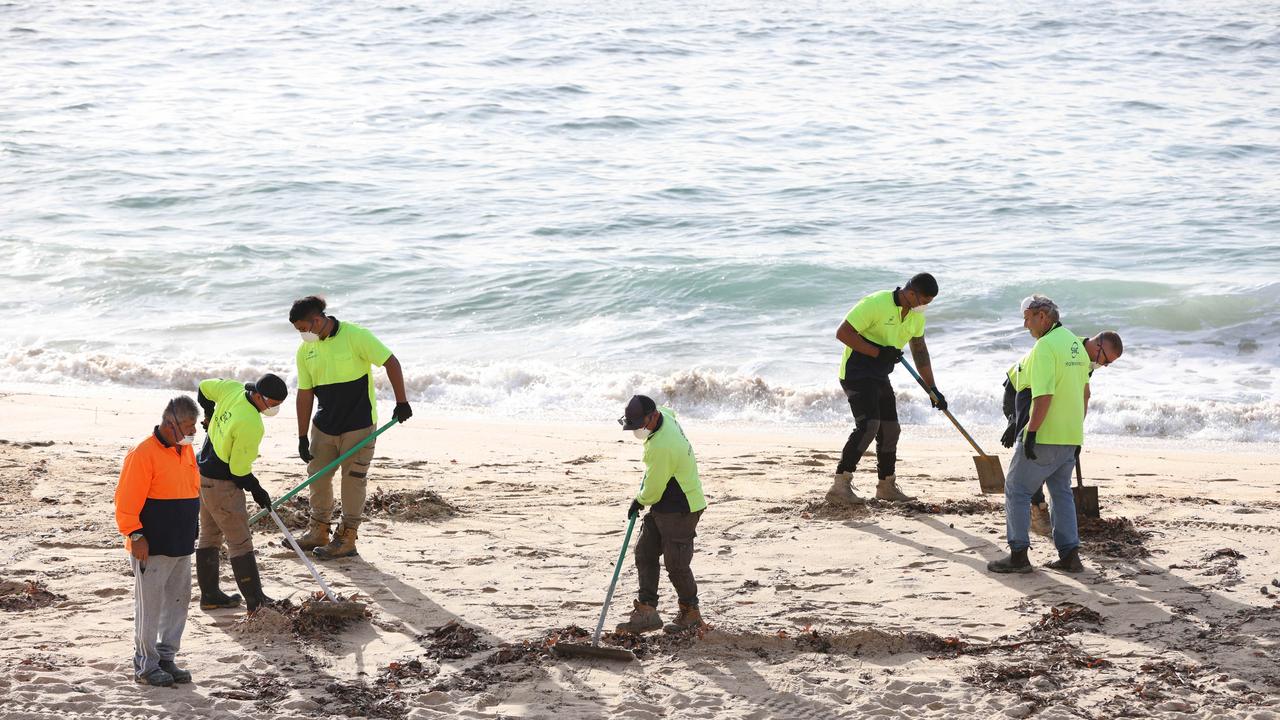
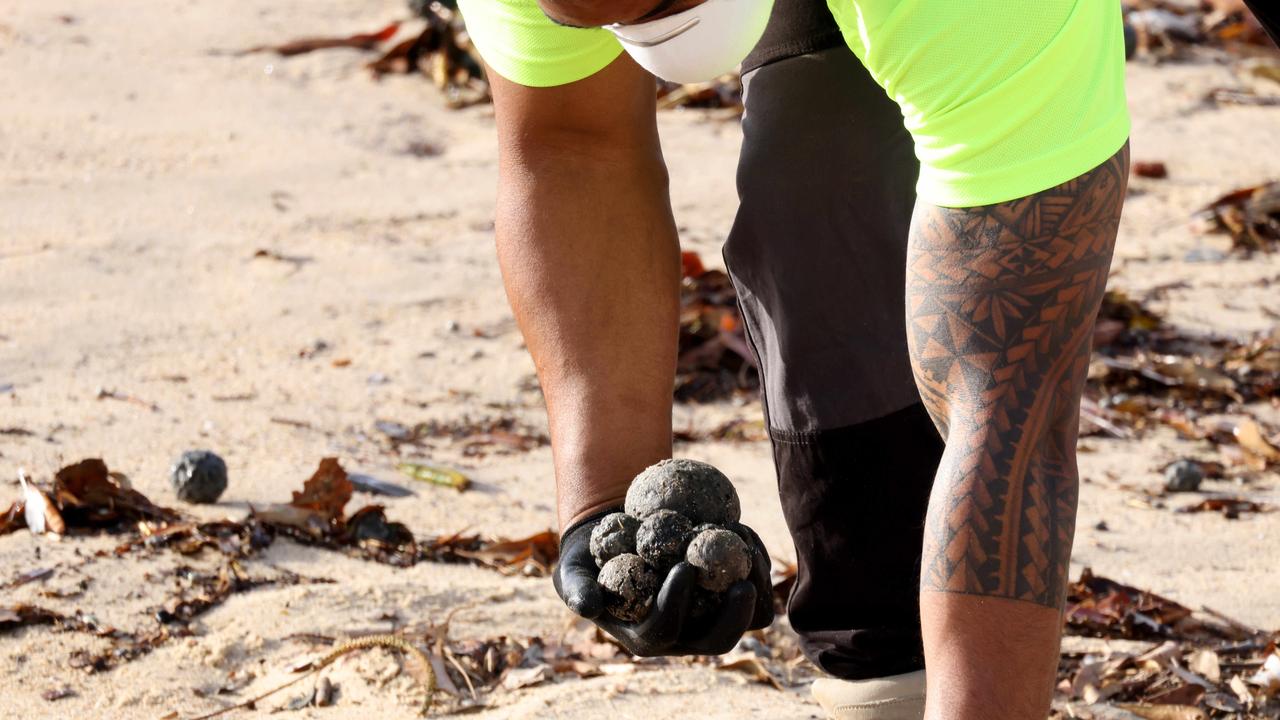
Coogee is one of Sydney’s star beaches and a tourist hotspot.
Read related topics:Sydney


